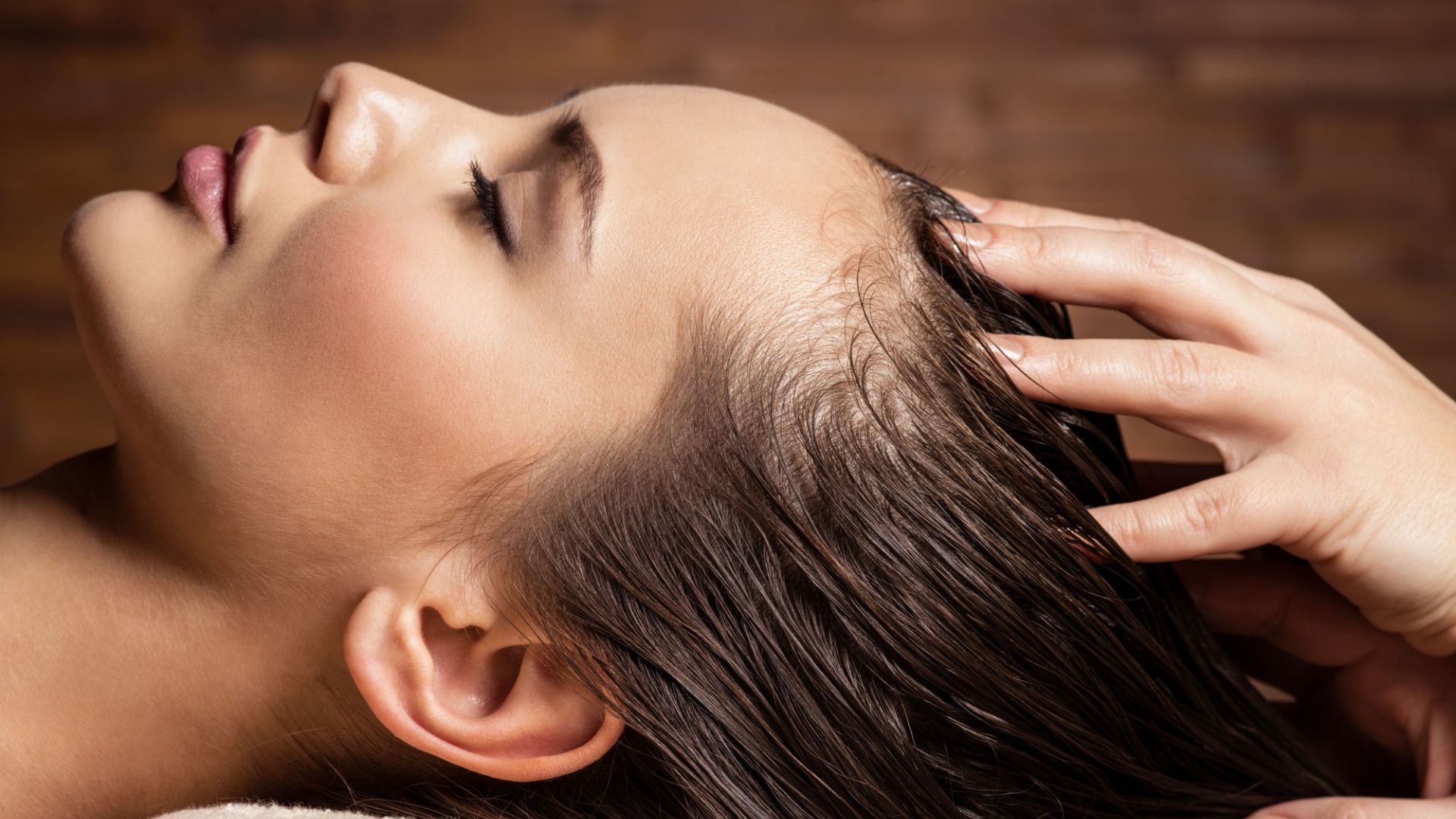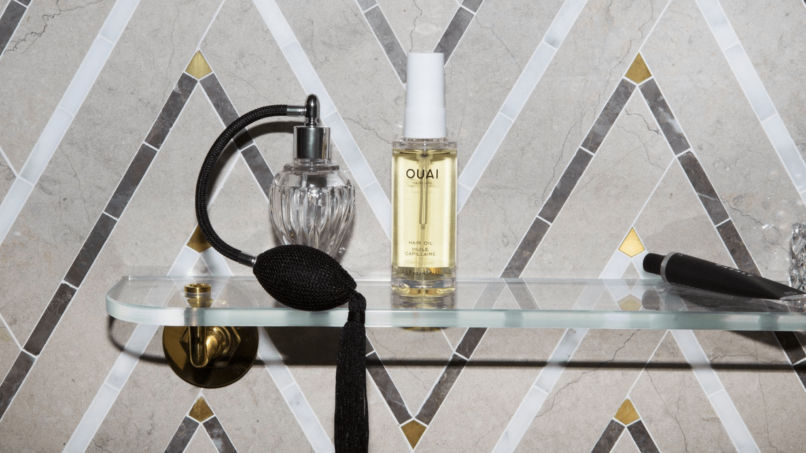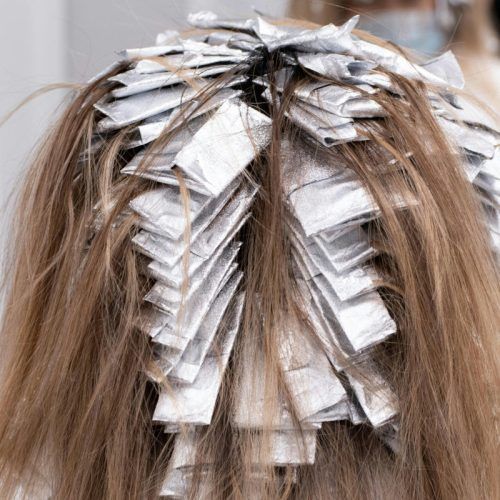You may have seen hair oiling treatment on mainstream media or caught the special ritual between sisters Edwina and Kate Sharma on season two of Netflix’s Bridgerton. Sure, hair oiling is having a significant global moment, but cold-pressed hair oils have started to hit the mainstream consciousness. The concept of cold-pressed oils isn’t new, but the term has recently overtaken the beauty industry. But what is cold-pressed oil, and how does it work? Regular oil or cold-pressed oil — which one should you choose for your tresses? We break it down to help you take the guesswork out of finding the best hair oil for you.
Hair oiling is a ritual core to the South Asian beauty culture. But for the unversed, the ritual involves massaging the oil onto the strands and scalp and leaving it on for a few hours before rinsing it. The benefits of oiling are plentiful. Oiling can make your mane feel softer, provide heat protection, and prevent unwanted frizz.
Hair oiling is vital for anyone struggling with hair loss, breakage and damaged hair. The treatment strengthens and protects hair follicles, conditions the scalp skin, and cultivates healthy hair growth. But what is the difference between cold-pressed and regular hair oil? Let’s find out.
Cold-pressed vs regular hair oil — which one should you pick?
Cold-pressed oil is produced by pressing seeds and nuts (such as almonds, groundnut, and olives) at room temperature, lower than 49 degrees Celsius. In addition, the process does not involve roasting the seeds and nuts in order to retain the nutrients. As a result, cold-pressed oils have higher Omega 3 (anti-inflammatory) fatty acids and more antioxidants. Most cold-pressed oils are also rich in vitamin E.
On the other hand, the refined oil-making process involves filtration through unwanted and hazardous chemicals and heat. In addition, the process involves pressing the seeds and nuts at high temperatures and then roasting the components to retain the fragrance, making the oils look light and shiny. Due to the elevated temperatures, hot-pressed oils tend to lose their nutritional value.
Cold-pressed oils borrow a strong taste scent from their components, primarily lost in refined oils. They are also richer in vitamins and nutrients to provide all the nourishment to your scalp.

Use these cold-pressed oils to get long, lustrous hair
Here are some of the most nourishing cold-pressed oils that can promote hair nourishment.
Coconut oil to repair dryness
Yes, your favourite deep-conditioning hair treatment might have been in your kitchen all this while. Packed with vitamins and micronutrients, cold-pressed coconut oil works wonders in returning the moistness to dry, brittle strands. Massage the oil on your scalp and strands, and sleep with it overnight. Then, rinse it off with shampoo in the morning for smoother and much more manageable locks.
Castor oil for hair growth
Add cold-pressed castor oil to your hair care routine if your hair refuses to grow past your shoulders. Castor oil has been used for centuries (especially in Jamaican beauty routines) for its moisturising properties. Rich in ricinoleic acid, castor oil moisturises and soothes, making it perfect for dry scalp and even more dehydrated locks. To get into the science a little bit, castor oil is a long-chained fatty acid that can provide proteins and nutrients to your follicles and help prevent inflammation.
Gently apply the oil to your scalp and locks, let it sit for an hour and then wash it off with cold water to retain that shine on your tresses.

Shop for cold-pressed castor hair oil here
Sweet almond oil to tackle frizz
The sweet-smelling sweet almond oil has been used for centuries to relieve dryness and shield the locks from damage by harsh sun rays. Moreover, cold-pressed almond oil promotes overall hair health by hydrating the scalp, smoothening out frizz, and reviving damaged hair. For better absorption, make sure to warm your sweet almond oil before you apply it.
Shop for sweet almond oil here
Jojoba oil for soft and shiny tresses
Every beauty influencer swears by the powers of jojoba oil, regardless of hair type. So, if you are struggling with dry or damaged hair, it’s time to rethink hair oils because you’ll love jojoba oil. Rich in vitamin E, jojoba oil forms a protective coating over each hair strand, reducing frizz, locking in moisture, and making hair soft and tangle-free.
To combat dandruff or dry hair, leave cold-pressed jojoba oil overnight for a deep-conditioning treatment.
(Feature image credit: Pxfuel)
(Hero image credit: Wallpaper Flare)
Frequently Asked Questions (FAQs)
Cold-pressed oils have higher Omega 3 (anti-inflammatory) fatty acids and more antioxidants. Most cold-pressed oils are also rich in vitamin E.
Cold-pressed oil is produced by pressing seeds and nuts (such as almonds, groundnut, and olives) at room temperature, lower than 49 degrees Celsius. In addition, the process does not involve roasting the seeds and nuts in order to retain the nutrients.
Castor cold-pressed oil is the best for hair growth. Rich in ricinoleic acid, castor oil moisturises and soothes, making it perfect for dry scalp and even more dehydrated locks.
Cold-pressed oils can be a bit more expensive than regular oils and that is the only downside.








